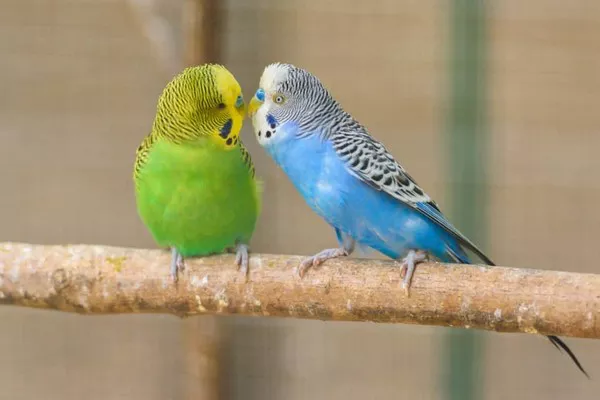Indian Ringnecks, known for their vibrant plumage and intelligent demeanor, make wonderful companions for bird enthusiasts. However, ensuring the well-being of these magnificent parrots involves more than just providing a spacious cage and a loving environment. A crucial aspect of caring for Indian Ringnecks is understanding their dietary needs and, equally important, knowing what Indian Ringnecks cannot eat. In this comprehensive guide, we’ll delve into the dietary restrictions that every responsible Indian Ringneck owner should be aware of.
Toxic Foods for Indian Ringnecks
Indian Ringnecks, like many other parrot species, are highly sensitive to certain foods that can be toxic to their health. Chocolate, avocados, caffeine, and alcohol are among the top offenders. These items contain substances like theobromine, persin, and ethyl alcohol, which can lead to severe health issues and even prove fatal for Indian Ringnecks. Owners must exercise extreme caution and ensure that these toxic foods are kept far away from their feathered companions.
High-Fat Foods and Indian Ringnecks
While a balanced diet is essential for the overall health of Indian Ringnecks, excessive consumption of high-fat foods can lead to obesity and related health problems. Seeds, nuts, and oily foods, if given in abundance, can contribute to weight gain in Indian Ringnecks. It is crucial for owners to strike a balance between providing essential nutrients and avoiding an overindulgence in high-fat options to maintain the optimal health of their avian friends.
Salt and Indian Ringnecks
Excessive salt intake is harmful to Indian Ringnecks and can lead to various health complications, including kidney issues. Salted snacks, processed foods, and items with added salt should be strictly avoided. Indian Ringnecks naturally derive the necessary sodium from their regular diet, and any additional salt can upset the delicate balance, leading to health problems that could have been easily prevented through mindful dietary choices.
Sugary Treats and Indian Ringnecks
Just like in the case of humans, a diet high in sugar is detrimental to the health of Indian Ringnecks. Sugary treats, candies, and sweetened foods can contribute to obesity, diabetes, and other health issues. Owners must resist the temptation to offer sugary indulgences to their feathered companions, opting instead for healthier, bird-friendly treats to maintain the well-being of their Indian Ringnecks.
Avoiding Processed and Fried Foods for Indian Ringnecks
Processed and fried foods, common in many households, are a definite no-no for Indian Ringnecks. These foods are often high in unhealthy fats, salt, and preservatives, which can lead to digestive problems and negatively impact the overall health of these intelligent birds. Opting for fresh, natural foods is a healthier choice and promotes the longevity and vitality of Indian Ringnecks.
Onions and Garlic: A Cautionary Tale for Indian Ringnecks
Onions and garlic, while staple ingredients in many human dishes, can be harmful to Indian Ringnecks. These foods contain compounds that can lead to anemia and damage the red blood cells in these birds. Indian Ringneck owners should be vigilant about avoiding any foods that contain onions or garlic, ensuring that their pets are kept safe from potential health risks.
Spicy Foods and Indian Ringnecks
Indian Ringnecks, despite their name, do not have an inherent tolerance for spicy foods. In fact, the capsaicin found in hot peppers can be irritating to their digestive systems. Spicy foods should be excluded from their diet to prevent gastrointestinal distress. Owners should be cautious about accidental exposure, ensuring that their Indian Ringnecks are not offered any spicy or heavily seasoned dishes.
Moldy or Spoiled Foods: A Hidden Danger for Indian Ringnecks
Moldy or spoiled foods pose a serious threat to the health of Indian Ringnecks. These foods can contain harmful bacteria and mycotoxins, leading to digestive issues and other health problems. It is imperative for owners to regularly inspect their pet’s food, ensuring that it is fresh and free from any signs of spoilage to safeguard the well-being of their Indian Ringnecks.
Avoiding Dairy Products for Indian Ringnecks
While dairy products may seem harmless, they can be challenging for Indian Ringnecks to digest due to lactose intolerance. Dairy can lead to digestive upset and diarrhea in these birds. It’s advisable to steer clear of offering any form of dairy, including milk and cheese, and focus on providing alternatives that are better suited to the digestive systems of Indian Ringnecks.
Artificial Additives and Indian Ringnecks
Artificial additives, such as food colorings and preservatives, can have adverse effects on the health of Indian Ringnecks. These substances can lead to allergies, behavioral issues, and other health complications. To ensure the optimal well-being of their avian companions, owners should choose natural, additive-free foods and treats that support the dietary needs of Indian Ringnecks.
Conclusion
In conclusion, being a responsible Indian Ringneck owner involves not only providing love and care but also being mindful of their dietary restrictions. By avoiding toxic foods, high-fat options, excessive salt, sugary treats, processed and fried foods, onions, garlic, spicy dishes, moldy or spoiled foods, dairy products, and artificial additives, owners can ensure the longevity and vitality of their Indian Ringnecks. A well-balanced and nutritious diet, coupled with regular veterinary check-ups, is the key to keeping these intelligent and beautiful birds happy and healthy for years to come.
Related Topics:
Finding Compatible Avian Companions for Indian Ringnecks
What Do Indian Ringnecks Eat?
When Do Indian Ringnecks Start Talking?

























